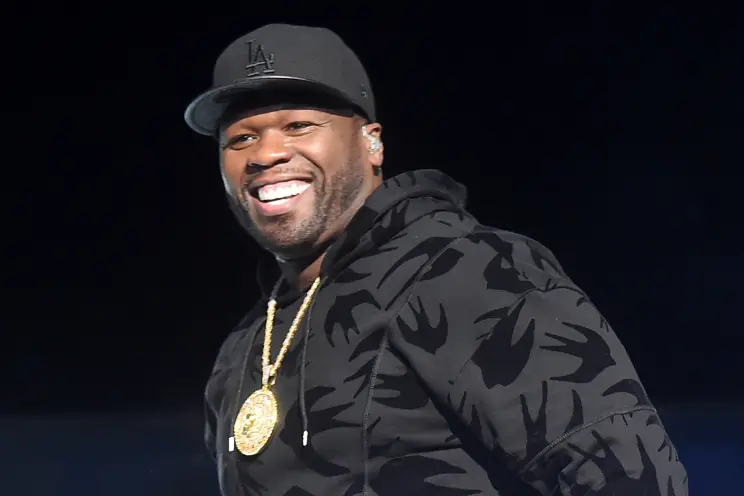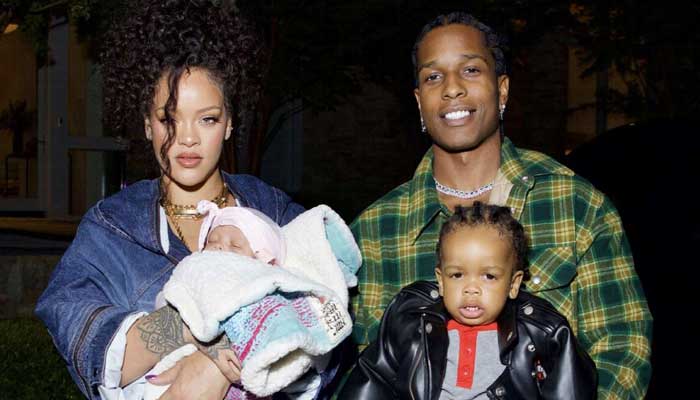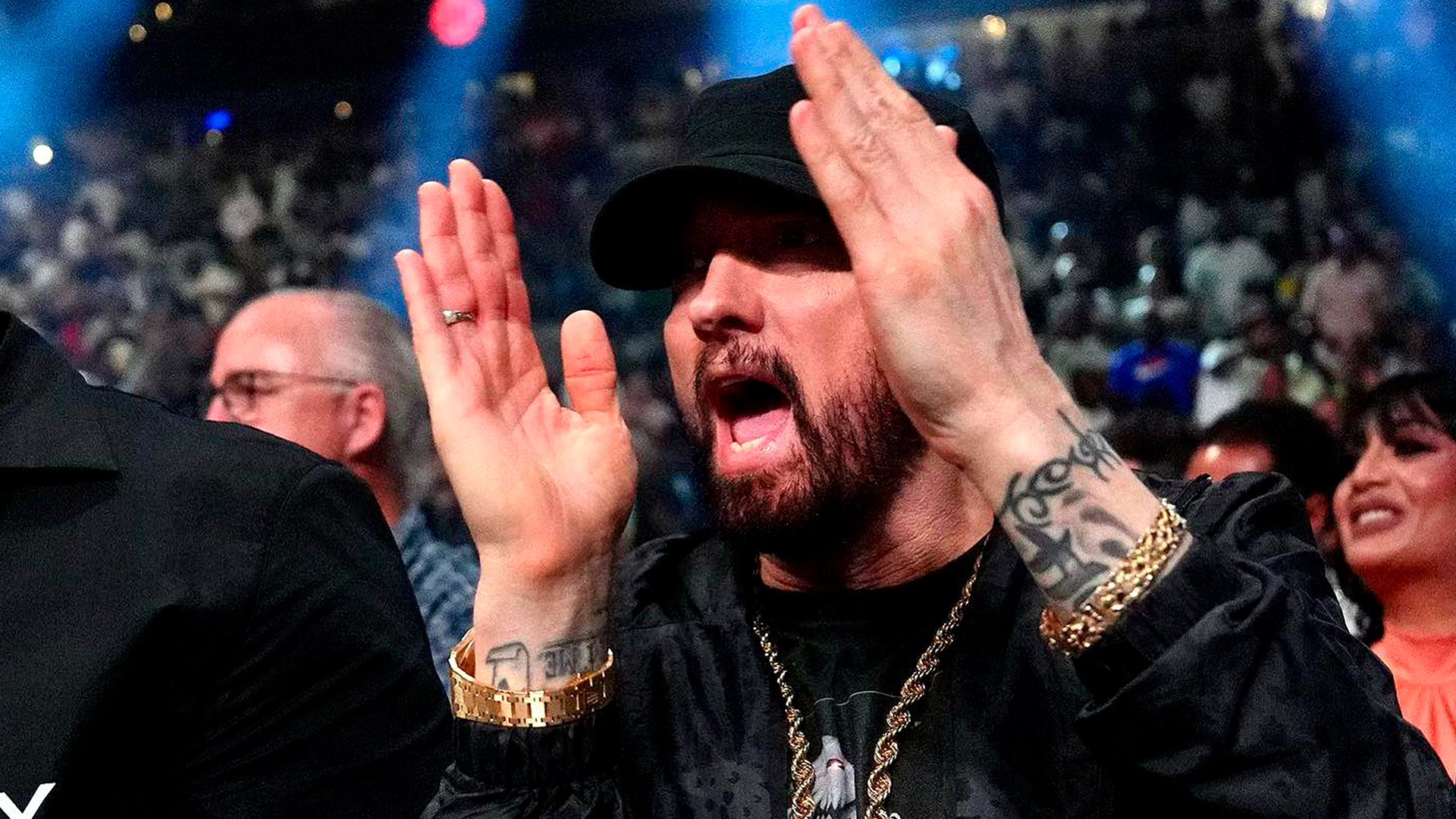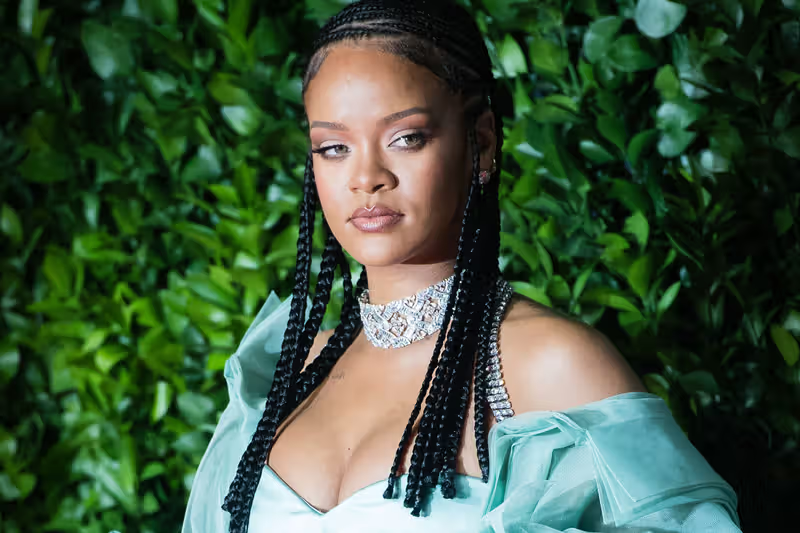50 Cent Exposes Lil Baby HUMILIATION Ritual │ Michael Rubin Turned Him

NEW YORK, NY — In the world of hip-hop, image is everything and reputation is currency. But recent viral moments involving rapper Lil Baby, billionaire Michael Rubin, and a string of high-profile parties have ignited a firestorm of debate about the hidden costs of fame—and the strange, sometimes humiliating rituals that may be required to stay at the top.
Now, hip-hop heavyweight 50 Cent is weighing in, claiming the industry is forcing young stars like Lil Baby to endure public humiliation as a rite of passage. Is it all just conspiracy, or is something more sinister at play behind the velvet ropes?
The Viral Moment That Sparked It All
It started innocently enough: a video of Lil Baby at a Hamptons “white party” hosted by Michael Rubin, the billionaire CEO of Fanatics. In the now-infamous clip, Lil Baby is hugged from the back by Rubin, with NBA star Kyle Kuzma joining in. The trio, surrounded by celebrities and cameras, looks like any group of friends at a summer bash. But the internet quickly zeroed in on the awkwardness of the embrace, with many suggesting the moment was anything but innocent.
The video went viral, and so did the commentary. 50 Cent, never one to hold his tongue, reposted the photo on Instagram, mocking the scene: “See, this is why I don’t go to no party Puffy and them at. The f*** is going on here?” He doubled down, adding, “Get the f*** off of my young man.” For 50, the message was clear: these industry parties are more than just fun—they’re about power, control, and, sometimes, humiliation.
Lil Baby’s Transformation: Tattoos, Shorts, and a New Persona
The party wasn’t the only thing raising eyebrows. In 2025, Lil Baby debuted a set of new tattoos—his first ever—inked boldly across his thighs. For years, Baby had insisted he would never get tattoos, explaining in interviews that he wanted to keep his image clean for business opportunities beyond rap. Yet suddenly, he was flaunting “90s Baby” inked on his thighs, along with a large “CBFW” running down his leg.
Fans were baffled. Why would a rapper with no upper body tattoos suddenly get his thighs covered? Social media exploded with theories, many referencing the “humiliation ritual” trope that’s haunted the music industry for decades. Comments flooded in: “The industry got a hold on my boy,” and “Lay off them shorts.” The speculation only grew when Lil Baby performed in those same shorts, a pink belt, and a tank top—repeatedly hiking up his shorts to show off the new ink.

50 Cent’s Theory: Humiliation as a Rite of Passage
For 50 Cent, these changes weren’t just about fashion or personal growth. They were evidence of a deeper industry dynamic—a series of rituals and tests that young rappers must endure to ascend the ranks. “Ever since that Reuben party, that ain’t my boy no more. They got him,” 50 said, referencing the viral hug and Lil Baby’s subsequent image shift.
50 Cent’s comments reflect a long-standing suspicion in hip-hop: that the industry’s gatekeepers, often older, wealthier, and whiter, demand humiliating displays of loyalty or submission from young Black artists. Whether it’s wearing certain clothes, performing embarrassing stunts, or allowing themselves to be physically handled in public, these acts serve as both initiation and control.
The Michael Rubin Connection: A Billionaire’s Obsession?
So who is Michael Rubin, and why is he at the center of this storm? Rubin, 52, is the founder and CEO of Fanatics, a multi-billion-dollar sports merchandising empire. He’s not a music executive or a producer, but over the past decade, he’s become one of the most influential figures in hip-hop and sports, known for his lavish parties and close relationships with rappers and athletes.
Rubin’s all-white parties in the Hamptons have become legendary, drawing A-listers like Jay-Z, Beyoncé, Tom Brady, Kim Kardashian, and, of course, Lil Baby. The parties are exclusive, decadent, and meticulously documented on social media. But to some observers, they’re also a stage for power dynamics that rarely see the light of day.
Critics point to the optics: a white billionaire hosting parties where young Black men are the main attraction, sometimes subjected to playful but awkward physicality, as in Lil Baby’s viral hug. Others recall the viral video of rapper Meek Mill, another Rubin protégé, bunny-hopping on a tennis court after losing a bet to Rubin—a scene that many found uncomfortable, even demeaning.
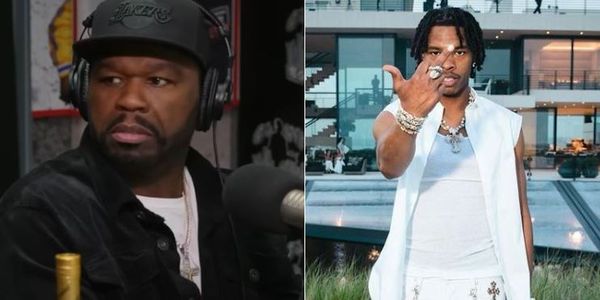
The Humiliation Ritual: Conspiracy or Business as Usual?
The idea of an “industry humiliation ritual” isn’t new. Comedian Katt Williams, among others, has spoken openly about the strange initiations and symbolic acts that celebrities must endure to gain acceptance—or protection—in the entertainment world. Williams has referenced secret parties, coded dress, and even occult symbolism as part of the industry’s hidden curriculum.
While some dismiss these theories as paranoia or jealousy, others see a pattern. Over and over, young artists find themselves in compromising situations—moments that are captured, shared, and sometimes used as leverage. The message is clear: fame comes at a price, and the gatekeepers always collect.
Lil Baby’s Response: Damage Control and Defiance
For his part, Lil Baby has tried to set the record straight. Appearing on Lil Yachty’s podcast, he admitted that the memes and rumors about him and Rubin bothered him enough that he asked Rubin for security footage from the party, hoping to prove nothing untoward happened. “It’s 100 people at the party. We in the middle of 100 people. There’s nothing weird we could be doing,” Baby insisted.
Still, he chose not to release the footage, saying he didn’t want to give the rumors more oxygen. Instead, he doubled down on his friendship with Rubin, calling him a “super great influence” in his life, though he struggled to articulate exactly how Rubin had helped him.
Rubin, for his part, has laughed off the speculation, calling the viral photos “ridiculous” and describing Lil Baby as “one of the best human beings on the planet.” He chalked the incident up to drunken fun at a 13-hour party, insisting that nothing inappropriate happened and that social media critics are simply looking for scandal.
The Power Dynamics of Fame
But for many fans and industry watchers, the explanations ring hollow. Why do so many young Black artists gravitate toward Rubin and his parties? What do they gain—and what do they risk losing? Some point to Rubin’s vast network and influence, which can open doors to lucrative deals, legal help, and career advancement. Others suggest that the price of admission is more than just a party invitation—it’s a willingness to play along, to be seen, and sometimes, to be embarrassed.

The parallels to Diddy’s legendary white parties in the 1990s and 2000s are hard to ignore. Back then, the Hamptons were the playground of the hip-hop elite, and the parties were rumored to be as much about business as pleasure. Today, Rubin has taken up the mantle, and the same faces—Leonardo DiCaprio, Jay-Z, Beyoncé—still attend.
A Darker Side: Rituals, Rumors, and Control
The rumors don’t stop at parties and tattoos. Fans have linked these public spectacles to even darker theories about industry control, referencing occult symbolism, secret societies, and the idea that humiliation is a tool for breaking down artists’ identities and rebuilding them in the industry’s image.
While there’s little hard evidence to support the wildest claims, the pattern of public embarrassment, sudden shifts in image, and the ever-present cameras suggest that something is amiss. As one fan put it: “The industry got a hold on my boy.”
Conclusion: The Cost of Staying at the Top
Whether or not you believe in industry rituals, one thing is clear: the path to fame in hip-hop is fraught with challenges, both seen and unseen. For Lil Baby, the scrutiny is intense, the stakes are high, and every move is watched, judged, and meme’d. For 50 Cent and others who’ve been through the fire, the lesson is simple: protect your image, guard your dignity, and never forget who’s really in control.
In the end, the real humiliation may not be in the parties or the photos, but in the loss of privacy, the constant judgment, and the relentless pressure to conform. As the industry keeps turning, only time will tell who’s really pulling the strings—and who’s just dancing to the beat.
